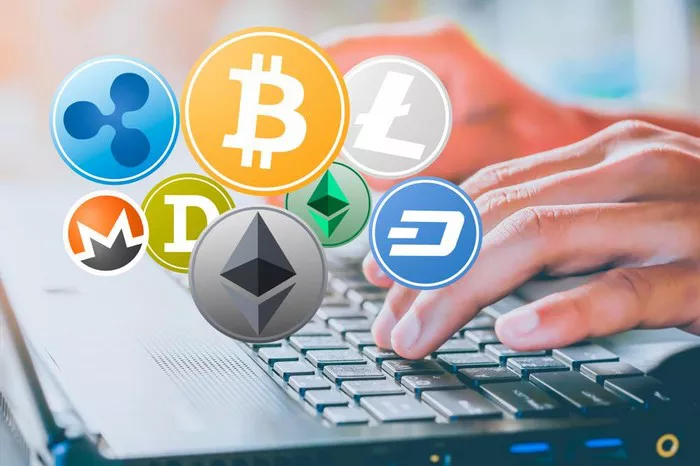The rapid rise of Bitcoin from a niche digital currency to a global financial asset has left investors and analysts searching for the next big thing in the cryptocurrency world. As Bitcoin continues to dominate the market, the question on everyone’s mind is: what crypto could be the next Bitcoin? Identifying the next major cryptocurrency requires a careful examination of market trends, technological advancements, and investor sentiment. This article explores potential contenders, analyzing their unique attributes and the factors that might propel them to Bitcoin-like status.
Understanding Bitcoin’s Success
Before delving into potential successors, it’s crucial to understand what made Bitcoin successful in the first place. Bitcoin, launched in 2009 by the pseudonymous Satoshi Nakamoto, was the first decentralized cryptocurrency, pioneering the use of blockchain technology. It offered a new way to conduct transactions without intermediaries like banks, which resonated with those seeking financial autonomy.
Bitcoin’s appeal grew due to several factors:
Decentralization: Bitcoin operates on a decentralized network, making it resistant to censorship and government control.
Scarcity: With a maximum supply of 21 million coins, Bitcoin’s scarcity has fueled its value over time.
Security: The Bitcoin network’s robust security, maintained through a proof-of-work (PoW) consensus mechanism, has helped it gain trust.
Adoption: Bitcoin’s first-mover advantage and increasing acceptance by businesses and financial institutions solidified its status as “digital gold.”
These characteristics have made Bitcoin the dominant cryptocurrency, but as the market evolves, other cryptocurrencies are emerging with the potential to challenge its supremacy.
What Makes a Cryptocurrency the “Next Bitcoin”?
For a cryptocurrency to be considered the next Bitcoin, it needs to demonstrate several key attributes:
Innovation: The next big cryptocurrency will likely introduce a novel technology or use case that solves real-world problems more effectively than Bitcoin.
Scalability: Bitcoin has faced challenges with transaction speed and scalability. A cryptocurrency that addresses these issues could gain an edge.
Adoption: Widespread adoption by users, businesses, and institutions is critical. The more a cryptocurrency is used in everyday transactions, the more value it will have.
Security: Like Bitcoin, any serious contender must have a secure and reliable network, whether through proof of work, proof of stake (PoS), or other consensus mechanisms.
Community and Developer Support: A strong, active community and developer support can drive innovation and improvements, keeping the cryptocurrency relevant.
With these criteria in mind, let’s explore some cryptocurrencies that have the potential to be the next Bitcoin.
Ethereum: The King of Smart Contracts
Ethereum (ETH) is often considered the closest contender to Bitcoin. Launched in 2015 by Vitalik Buterin, Ethereum introduced smart contracts—self-executing contracts with the terms of the agreement directly written into code. This innovation opened up new possibilities for decentralized applications (dApps) and decentralized finance (DeFi).
Why Ethereum Could Be the Next Bitcoin
Smart Contract Capability: Ethereum’s smart contracts have revolutionized the blockchain space, enabling a vast ecosystem of dApps, DeFi platforms, and non-fungible tokens (NFTs).
Network Upgrades: Ethereum’s ongoing transition to Ethereum 2.0, which includes a shift from proof of work to proof of stake, aims to improve scalability, reduce energy consumption, and increase transaction speed.
Widespread Adoption: Ethereum’s network is widely used for various applications, from decentralized exchanges to gaming platforms, making it a central hub in the crypto space.
Strong Developer Community: Ethereum has one of the largest and most active developer communities, constantly innovating and expanding the platform’s capabilities.
While Ethereum faces challenges, such as high gas fees and network congestion, its continuous upgrades and broad use case make it a strong candidate for the title of the next Bitcoin.
Cardano: The Green Alternative
Cardano (ADA) is another cryptocurrency that has garnered attention as a potential successor to Bitcoin. Founded by Charles Hoskinson, a co-founder of Ethereum, Cardano aims to create a more sustainable and scalable blockchain network through its research-driven approach.
Why Cardano Could Be the Next Bitcoin
Proof of Stake Consensus: Cardano uses a proof-of-stake (PoS) consensus mechanism, which is more energy-efficient than Bitcoin’s proof of work. This makes Cardano an attractive option for environmentally conscious investors.
Scientific Approach: Cardano’s development is grounded in peer-reviewed academic research, ensuring that each upgrade and feature is thoroughly vetted for security and efficiency.
Scalability and Interoperability: Cardano’s design prioritizes scalability and interoperability with other blockchains, which could position it as a key player in the broader crypto ecosystem.
Growing Ecosystem: With the launch of smart contracts on the Cardano network, the platform has started attracting developers and projects, further expanding its use case.
Cardano’s emphasis on sustainability, security, and scalability, combined with its academic foundation, makes it a strong contender for the next Bitcoin.
See Also: Where to Purchase Cryptocurrency?
Solana: The Speedster
Solana (SOL) is known for its high-speed transactions and low fees, positioning it as a promising alternative to both Bitcoin and Ethereum. Launched in 2020 by Anatoly Yakovenko, Solana has quickly gained traction as a fast and efficient blockchain network.
Why Solana Could Be the Next Bitcoin
High Throughput: Solana can process thousands of transactions per second (TPS), making it one of the fastest blockchains in the market. This scalability addresses one of Bitcoin’s significant limitations.
Low Transaction Costs: Solana’s efficient architecture allows for extremely low transaction fees, which could make it more attractive for everyday use.
Expanding Ecosystem: Solana has rapidly developed an ecosystem of dApps, DeFi platforms, and NFT marketplaces, drawing interest from developers and investors alike.
Institutional Interest: Solana has attracted investment from prominent venture capital firms and institutional players, signaling confidence in its long-term potential.
Solana’s combination of speed, low costs, and growing adoption makes it a compelling candidate for the next Bitcoin.
Polkadot: The Interoperability Champion
Polkadot (DOT), created by Ethereum co-founder Gavin Wood, is designed to enable different blockchains to interoperate with one another. This focus on interoperability could make Polkadot a key player in the future of decentralized networks.
Why Polkadot Could Be the Next Bitcoin
Interoperability: Polkadot’s ability to connect multiple blockchains allows for seamless data and asset transfers between different networks, addressing a significant limitation in the current blockchain landscape.
Scalability: Polkadot’s unique architecture enables high scalability by allowing multiple parallel blockchains (parachains) to process transactions simultaneously.
Flexible Development: Polkadot provides a flexible framework for developers to create custom blockchains, which can be tailored to specific use cases and industries.
Strong Team and Vision: With a strong team led by a co-founder of Ethereum, Polkadot has a clear vision for creating a more connected and scalable blockchain ecosystem.
Polkadot’s focus on interoperability and scalability positions it as a potential successor to Bitcoin, especially as the need for interconnected blockchain networks grows.
Binance Coin: The Utility Token
Binance Coin (BNB), initially created as a utility token for the Binance exchange, has evolved into a full-fledged cryptocurrency with its own blockchain, Binance Smart Chain (BSC). BNB’s growing utility and the popularity of Binance make it a contender in the race to become the next Bitcoin.
Why Binance Coin Could Be the Next Bitcoin
Wide Range of Uses: BNB is used for transaction fees on Binance, staking, lending, and as a medium of exchange on the Binance Smart Chain, giving it a broad utility.
High Transaction Speed: Binance Smart Chain offers fast transaction speeds and low fees, making BNB more practical for everyday transactions.
Strong Market Presence: As the native token of one of the world’s largest cryptocurrency exchanges, BNB has a significant market presence and user base.
Burn Mechanism: Binance regularly burns a portion of BNB tokens, reducing supply and potentially increasing its value over time.
Binance Coin’s utility and strong market position give it the potential to rise to prominence, though its centralized nature differentiates it from Bitcoin’s decentralized ethos.
The Challenges Ahead
While these cryptocurrencies each have the potential to be the next Bitcoin, it’s important to acknowledge the challenges they face:
Regulatory Scrutiny: Governments around the world are increasingly scrutinizing cryptocurrencies, which could impact their adoption and growth.
Competition: The cryptocurrency space is highly competitive, with new projects and innovations emerging regularly, making it difficult for any single cryptocurrency to dominate.
Technological Risks: As with any technology, blockchain networks are vulnerable to bugs, hacks, and other technical issues that could undermine their success.
Market Volatility: Cryptocurrencies are known for their extreme price volatility, which can lead to significant risks for investors.
Conclusion
Determining the next Bitcoin is no easy task. Each of the cryptocurrencies discussed—Ethereum, Cardano, Solana, Polkadot, and Binance Coin—has unique attributes that could propel it to Bitcoin-like status. However, the cryptocurrency market is still in its early stages, and predicting the future with certainty is impossible.
Investors should carefully consider the innovation, scalability, adoption, security, and community support of each cryptocurrency before making any decisions. While the next Bitcoin may not have emerged yet, these contenders are worth watching as the market continues to evolve.
[inline_related_posts title=”You Might Be Interested In” title_align=”left” style=”list” number=”3″ align=”none” ids=”3391,3388,3367″ by=”categories” orderby=”rand” order=”DESC” hide_thumb=”no” thumb_right=”no” views=”no” date=”yes” grid_columns=”2″ post_type=”” tax=””]




























